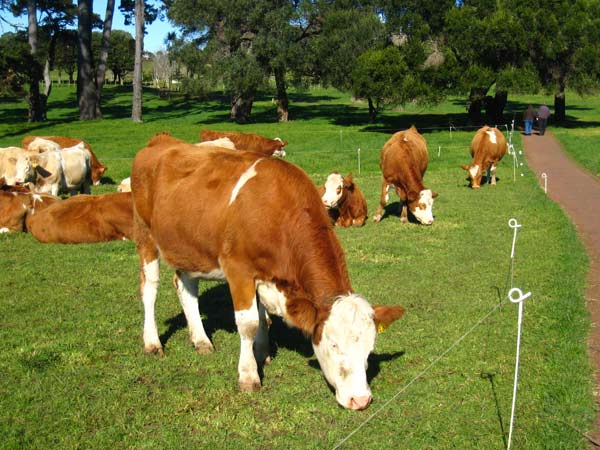
Shanghai Pengxin Group Co Ltd has completed the purchase of 16 dairy farms in New Zealand, after spending nearly two years convincing authorities in the country that the deal is beneficial to the local economy.
Pengxin Group, a privately owned group with businesses interests from property development to modern agriculture, first bid to buy the farms for NZ$210 million ($172 million) in June 2010.
|
 |
|
A dairy cow pasture in New Zealand. [Provided to China Daily] |
But legal and political objections by local Maori groups postponed the deal from being approved, based on allegations the Chinese company lacked the necessary business experience and failed to meet New Zealand's overseas investment threshold.
The High Court of New Zealand finally rejected the claims and approved Pengxin's bid on Friday.
The 16 farms occupy 8,000 hectares and have 16,000 dairy cows. A 50-50 joint venture will be created between Pengxin New Zealand Farm Group, a subsidiary of Pengxin Group, and the New Zealand government-owned Landcorp Farming Ltd to manage the acquired assets.
Jiang Lei, chief executive of Pengxin, declined to rule out buying more dairy farms in New Zealand.
Pengxin said in an announcement that it will invest NZ$15.7 million in the operation over the next three years.
The milk products will initially be sold to Fonterra - a leading multinational dairy company owned by 13,000 New Zealand dairy farmers and the world's largest exporter of dairy products - but Pengxin plans to eventually use the milk to produce a range of consumer products to be sold in China, the New Zealand Herald reported on Saturday.
"The purchase indicates that Chinese firms are chasing high quality, low cost dairy sources globally, which will further intensify competition in the domestic milk market," said Zhao Jun, an analyst from Xiangcai Securities.
Chao Daixiu, an analyst from First Capital, said one ton of domestic milk powder costs more than 30,000 yuan ($4,813), while the price of a ton of imported powder can be as low as 20,000 yuan.
"The fundamental reason behind the purchase is price. The rising demand for milk products in accordance with the growing middle-income consumer base will further highlight the shortage of milk supply and finally jack up dairy prices."
Since a scandal involving tainted milk powder was exposed in the media in 2008, domestic companies, including China's biggest beverage producer Hangzhou Wahaha Group Co, have claimed that they use imported dairy.
But despite the 2008 scandal, the Chinese dairy sector has continued to expand.
Shanghai-based Bright Dairy and Food, for example, China's third-largest dairy producer, recently announced its profit increased by 44.1 percent year-on-year between July and September thanks to high brand loyalty among its customers in the East China market.
"Bright Dairy's case has confirmed our view that a well-branded company can be resilient to food safety issues," said Zhou Mi, an analyst from Changjiang Securities Co Ltd.
In 2010, Bright Dairy spent about 382 million yuan for a 51 percent stake in the New Zealand milk processor Synlait.